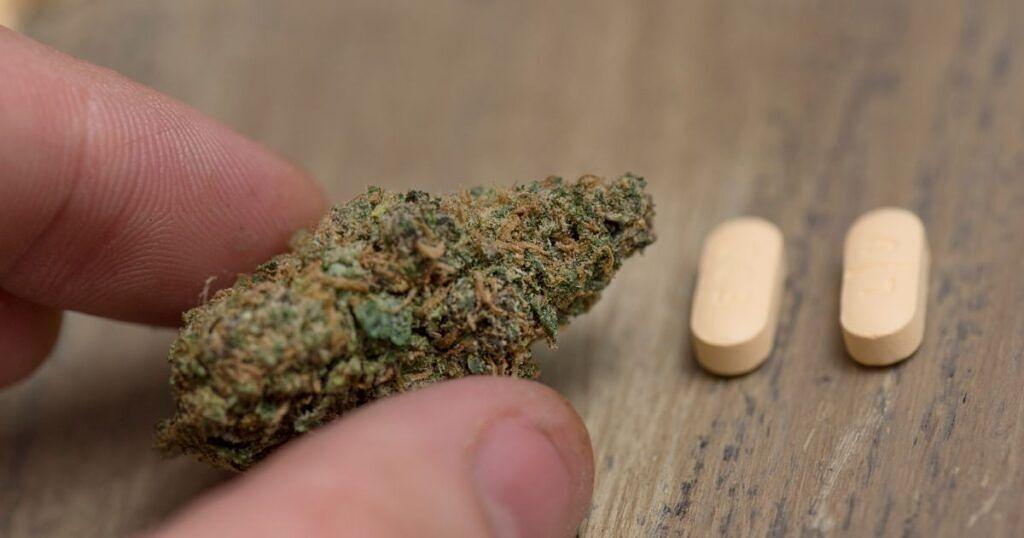
The opioid epidemic remains a significant public health crisis, leaving a trail of addiction and loss in its wake. As communities and healthcare providers search for safer, more effective pain management solutions, new research from the University of Georgia (UGA) offers a promising path forward. Two of their studies suggest that increased access to legal cannabis is associated with a significant reduction in opioid prescriptions, particularly among patients with cancer. These findings illustrate how legal cannabis reduces opioid use and provides compelling evidence that cannabis could play a crucial role in mitigating the opioid crisis.
For years, advocates have pointed to the potential of cannabis as a less harmful alternative for pain relief. Now, rigorous academic research is beginning to support these claims. The UGA studies are among the first to establish a plausible causal link between cannabis legalization, dispensary openings, and a decrease in opioid use. By examining a massive dataset of commercially insured patients, the researchers have uncovered trends that could reshape pain management protocols and public health policies across the nation.
A Closer Look at the Research
A team of researchers, led by Felipe Lozano-Rojas, an assistant professor in the UGA School of Public and International Affairs, conducted two separate but related studies to understand the relationship between cannabis laws and pain medication use. The team included W. David Bradford and Amanda J. Abraham from UGA’s Department of Public Administration and Policy, and Sumedha Gupta, an associate professor at Indiana University.
Their first study, upcoming in the American Journal of Health Economics, analyzed insurance claims data from millions of commercially insured patients between 2007 and 2020. In states that legalized medical cannabis, the rate of patients receiving opioid prescriptions dropped by an average of 16%. This decrease was consistent across different sexes, age groups, races, and ethnicities, suggesting a broad impact.
The second study, published in the JAMA Health Forum, focused specifically on patients with cancer, a group that often receives a high volume of opioid prescriptions for severe pain. This research used a cross-sectional study design with a synthetic control method to analyze how dispensary openings affected opioid dispensing. The findings were even more pronounced.
The Impact of Dispensaries on Opioid Use
The UGA researchers found that simply legalizing cannabis was not the only factor. The physical presence of dispensaries played a critical role. When medical cannabis dispensaries opened, the reduction in opioid prescriptions for cancer patients was dramatic.
According to the study, the opening of medical dispensaries was associated with:
- A change of -41.07 per 10,000 patients with cancer receiving opioid prescriptions.
- A decrease in the quarterly mean days’ supply of opioids by 2.54 days.
- A reduction in the mean number of prescriptions per patient by nearly 0.1.
These results were all statistically significant (P < .001), indicating a strong association. Recreational dispensary openings also led to reductions in opioid prescriptions, though the effect was smaller.
This suggests that improved access to legal cannabis reduces opioid use by encouraging patients to consider it as an alternative. When a legal, safe, and convenient source for cannabis exists, patients seem more willing to make the switch.
Felipe Lozano-Rojas talked this connection, stating that greater reductions in opioid prescriptions occurred when dispensaries opened, implying that improved access may be pivotal in encouraging some individuals to move away from opioids.
Why Cannabis May Be a Safer Alternative
An important point highlighted by the researchers is the comparative safety of cannabis versus opioids. “Pain patients are less likely to develop a substance use disorder to marijuana than opioids,” the researchers stated. This is an important consideration in the context of the ongoing opioid epidemic. By providing a less addictive option for pain management, cannabis access could help prevent the cycle of dependency that has affected so many.
“The results of these two studies are consistent across states and subpopulations: Cannabis legalization has a role to play in mitigating the opioid epidemic.” He added, “It’s nuanced, but if you’re in a lot of chronic or acute pain, it may be safer to use cannabis than opioids, provided your physician recommends that as an appropriate course of treatment.”
The studies also noted a slight increase in prescriptions for non-steroidal anti-inflammatory drugs (NSAIDs), like ibuprofen, suggesting a shift toward non-opioid pain management strategies in states with legal cannabis.
While the research is promising, the authors acknowledge its limitations. The study focused on commercially insured patients under 65, so the findings may not apply to publicly insured or older populations.
Furthermore, because the study observes associations at a state level, other concurrent policy changes could have influenced the results. Despite these caveats, the evidence presents a compelling case for re-evaluating the role of cannabis in modern medicine.
Charting a New Path for Pain Management
The research from the University of Georgia provides strong, data-driven evidence that legal cannabis reduces opioid use significantly. By offering a safer alternative for managing chronic and acute pain, especially for patients with cancer, cannabis has the potential to be a powerful tool in combating the opioid epidemic.
These findings challenge outdated stigmas and call for a more open-minded approach from both policymakers and the medical community. As more states move toward legalization, it is essential to consider how regulated access can be integrated into comprehensive public health strategies. The data shows that when patients have a choice, many opt for a path that avoids the risks associated with opioids. Supporting this choice through safe, legal, and accessible cannabis could save lives and fundamentally change how we manage pain.
Follow and Like:
Instagram: @ruderequipment
LinkedIn: Ruder Equipment
